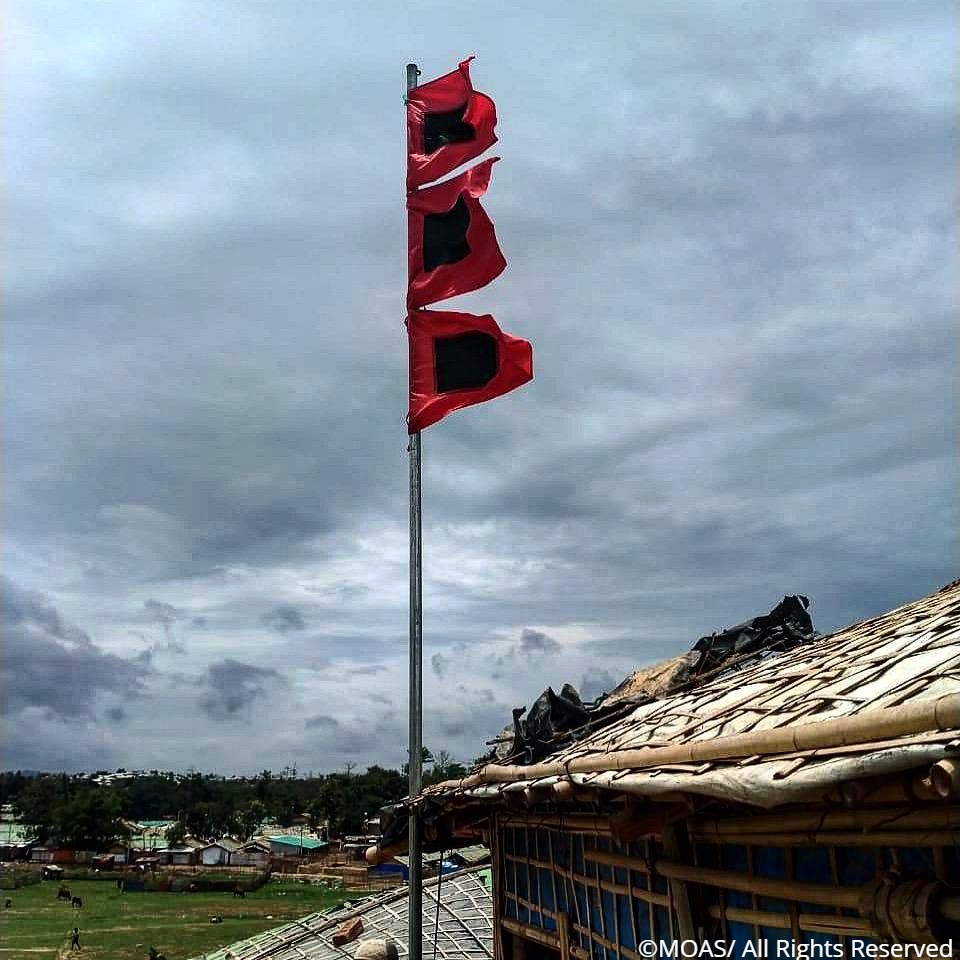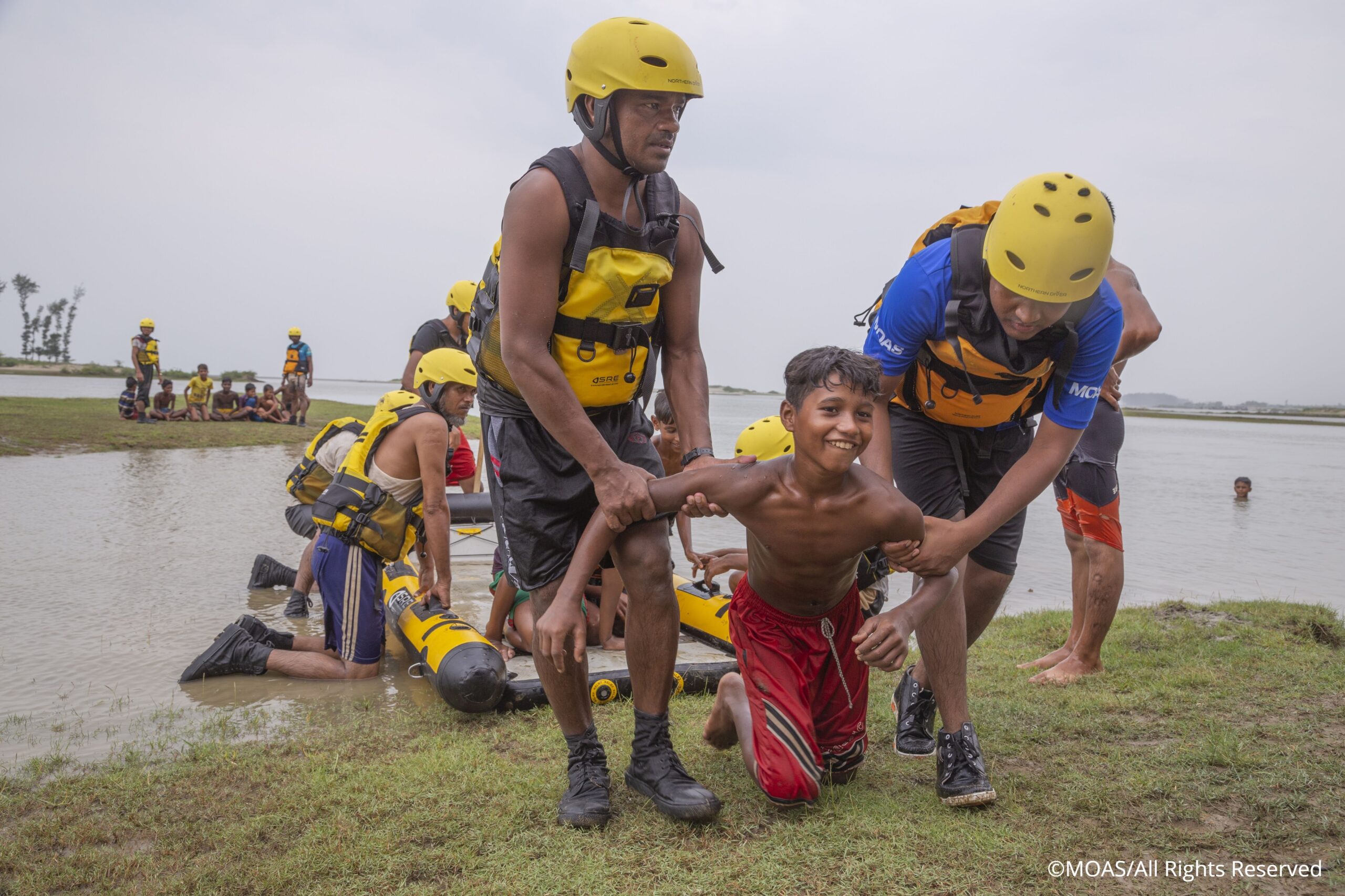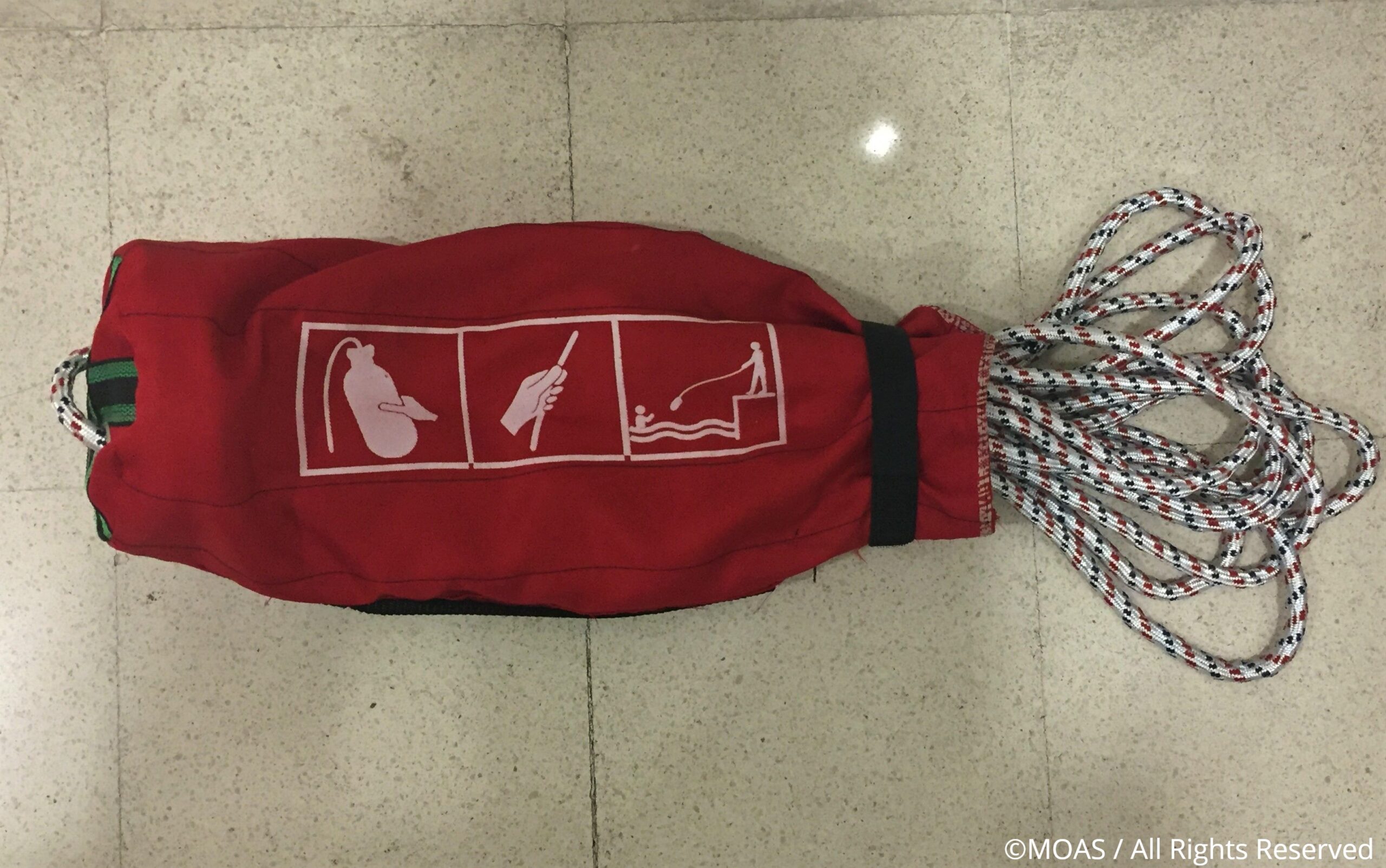#CycloneAmphan hit Bangladesh on 18th -19th of May, therefore it is crucial that we reflect on the importance of providing skills training in flood and water safety so as to ensure the local host community, as well as the Roihngya refugee population, is as well-equipped as they can be when confronted with such climate crises.
Cox’s Bazar district is a peninsula with the Bay of Bengal to the west and the Naf River to the east. This means that there are relatively few access roads stretching northwards from the refugee camps. These roads are at risk of flooding and structural damage in the event of a significant storm surge and access to the refugee camps for any responding agencies is likely to be restricted. In this context, the #DisasterGap is likely to be large.
The refugee and host community population in Cox’s Bazar district are extremely vulnerable to the impact of natural hazards such as floods and cyclones. A relatively small storm-surge could inundate large areas of land and impact tens of thousands of people. Consequently, in 2019, in response to this problem and in order to apply our expertise in maritime rescue, MOAS shifted our operations to deliver professional flood and water safety training to the Rohingya population as well as the local host community to improve their response to emergencies and to prevent the further unnecessary loss of lives and livelihoods as a result of climate disasters.
MOAS has partnered with the Bangladesh Red Crescent Society (BDRCS) and the United National High Commissioner for Refugees (UNHCR) to deliver this training and , by December 2019, MOAS had trained over 1230 volunteers The #Disaster Gap is the time between the impact of a natural hazard, and the rescue/medical/humanitarian response arriving. This may be hours, or even days in remote areas, which is why MOAS believes in empowering the community to take care of its own: it is vital to have local people trained as first-responders to help mitigate the devastation of these disasters in providing assistance before other professionals can lend their support.
In 1972 the Cyclone Preparedness Programme (CPP) was introduced as a joint venture between BDRCS and the Government of Bangladesh. Since then it has expanded significantly, and today there are over 55,000 CPP volunteers who stand ready to help their local community prepare for and recover from the impact of a disaster, many of which have been trained by MOAS via the training aforementioned. These volunteers provide safety cover for over 850,000 refugees at risk from a cyclone. With no evacuation plans for the camps, these people are the #SpontaneousResponders for the refugee population.
MOAS has worked with BDRCS and UNHCR in the camps that are most vulnerable to the risk of flooding. The specialist training taught the volunteers how to respond safely to help people in a flooded environment. The training included: hazard awareness, the correct use of buoyancy aids, safe wading techniques, swimming for self-rescue, wading with sleds for evacuating vulnerable people and the use of throw-bags as a rescue tool. Since 2018, MOAS has designed and manufactured the throw-bags, an international-standard equipment, to supply our trainees.
Despite the incredible power of the super-cyclone – #CycloneAmphan – in the Bay of Bengal, the power dissipated, and the track moved over 150km further west. The people in Cox’s Bazar certainly experienced rough weather, but it was fortunately very minor compared to the impact in Khulna and West Bengal. Nonetheless, we were heartbroken to hear that further north in Kalapara a boat carrying CPP volunteers capsized and the CPP team leader, Shah Alam, died. This tragic death highlights the risk that anybody takes when responding during a flood or storm event. For MOAS, we will continue our efforts to share the specialist skills and knowledge and push for expanding the flood training programme into all the coastal districts of Bangladesh.
Moreover, this cyclone has come at a time of great instability in the region as Bangladesh works hard to curb the spread of COVID-19 in a particularly vulnerable population. There has, therefore, been no respite for the Bangladeshi people and the Rohingya refugee community as they have been forced to simultaneously confront the havoc caused by both COVID-19 and #CycloneAmphan.
In light of the recent Cyclone, MOAS is looking forward to resuming our flood and water safety training as soon as possible, once COVID-19 restrictions have been lifted, to resume our work in equipping communities in Cox’s Bazar for other climate related disasters in the future in this region which is particularly vulnerable to such catastrophes.
If you are interested in the work of MOAS and our partners, please follow us on social media, sign up to our newsletter and share our content. You can also reach out to us any time via [email protected]. If you want to support our operations, please give what you can at www.moas.eu/donate.



